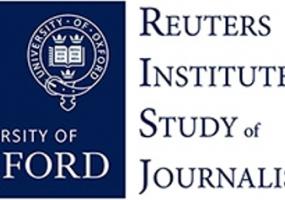Facebook and Twitter: the real winners in elections?
12 Jul 2010
A new study published by the Reuters Institute for the Study of Journalism (RISJ), shows that methods of electioneering and political reporting have changed for good because of Facebook and Twitter.Written by Nic Newman, former Future Media Controller of Journalism at the BBC and current Visiting Fellow at the RISJ, the study reveals how social media websites were used by more than 200 18-24 year olds during the week of the UK election. An online survey conducted 3-8 May 2010 suggests this group engaged in 'extremely high' levels of activity, using social media to discover and share content, discuss the election, or join Facebook groups and polls. The poll sought to indicate trends and does not claim to be statistically representative. However, the study reflects the findings of a nationwide YouGov survey, in which a quarter of 18-24 year olds said they had used social networks to comment on the general election, and 81 per cent of them expressed an interest in the election campaign. According to Newman, Twitter has 'cemented its place as a core communication tool' amongst political and media circles. In the study he describes it as an 'essential source of real-time information for journalists and politicians'. This key finding is due in part to the sheer number of MPs now using Twitter: 600 political candidates engaged with Twitter during the campaign, alongside hundreds of journalists and party workers. There are nearly 200 members of the new parliament, including five members of Cabinet who are currently active on Twitter. The study finds that 'even old style heavyweights like John Prescott (Labour MP) and Eric Pickles (Conservative MP) embraced social media'. It concludes that lessons were learned by journalists and politicians in how to harness the power of social networking sites, which contributed to ‘unprecedented levels of participation’ and voter turnout at the 2010 election. The issues and conclusions are framed within a wider international debate about the importance of these developments to the changing shape of mainstream media organisations, to levels of civic engagement, debates about quality, trust and accuracy, and to discussions about the practice and future of journalism.




